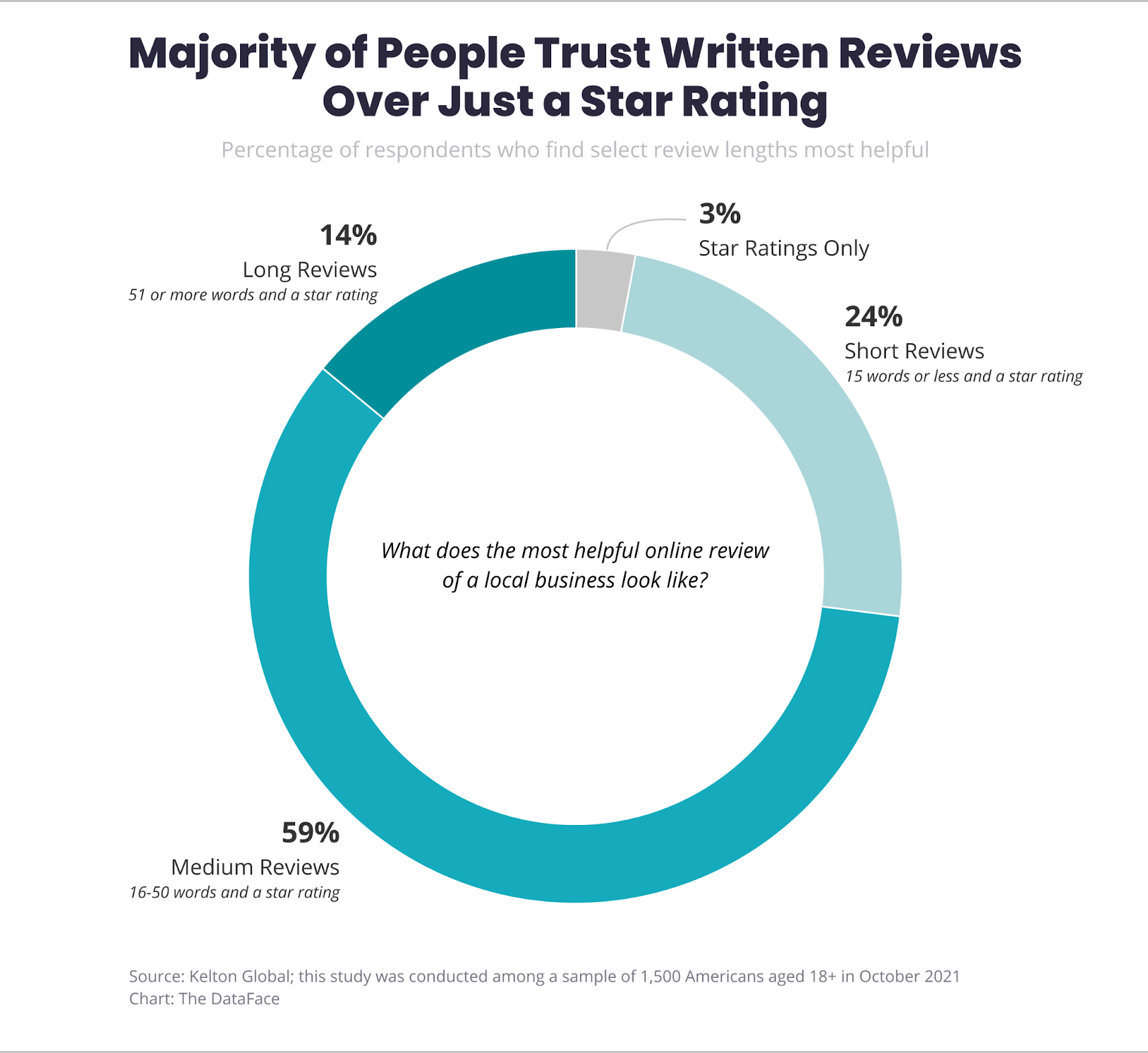According to the study, nine out of ten people, more precisely, 88 percent of people are more happy to ignore an unfavorable review if they know their company is dealing with the problem and dealing with it properly. Yelp commissioned Kelton to investigate the quality and openness of the reviews. In addition to star ratings, 97 percent of respondents believe that written evaluations are the most valuable sort of internet review for local companies.
If the business has replied and resolved the issue, respondents are more willing to ignore a previous unfavorable review. Customers are 33 percent more inclined to update a critical review if a business responds with a customized message within 24 hours, according to a prior Yelp study. If they know the firm urged their clients to post a review, half of the respondents (50 percent) indicated they don't believe the reviews. Almost two-thirds (64%) of those who read reviews believe that evaluations left after a business has requested for one are biased. On the other hand, 71% of those polled said they would write a review if the company provided them a discount or other inducement, suggesting that customers are either unaware of or unconcerned about the harm that false reviews might do.
Other than delivering a pleasant experience for your consumers, there isn't much you can do to influence a review, but there are actions you can do to recover from a poor review. A prompt reaction to a bad review, for example, may influence reviewers to increase their rating while also demonstrating to potential clients that you are satisfying their demands. Both Yelp and Google, for example, have particular guidelines against purchasing reviews, so it's better to avoid it.
Read next: What Are NFTs and Why is Everyone Talking About Them?
If the business has replied and resolved the issue, respondents are more willing to ignore a previous unfavorable review. Customers are 33 percent more inclined to update a critical review if a business responds with a customized message within 24 hours, according to a prior Yelp study. If they know the firm urged their clients to post a review, half of the respondents (50 percent) indicated they don't believe the reviews. Almost two-thirds (64%) of those who read reviews believe that evaluations left after a business has requested for one are biased. On the other hand, 71% of those polled said they would write a review if the company provided them a discount or other inducement, suggesting that customers are either unaware of or unconcerned about the harm that false reviews might do.
Other than delivering a pleasant experience for your consumers, there isn't much you can do to influence a review, but there are actions you can do to recover from a poor review. A prompt reaction to a bad review, for example, may influence reviewers to increase their rating while also demonstrating to potential clients that you are satisfying their demands. Both Yelp and Google, for example, have particular guidelines against purchasing reviews, so it's better to avoid it.
Read next: What Are NFTs and Why is Everyone Talking About Them?


